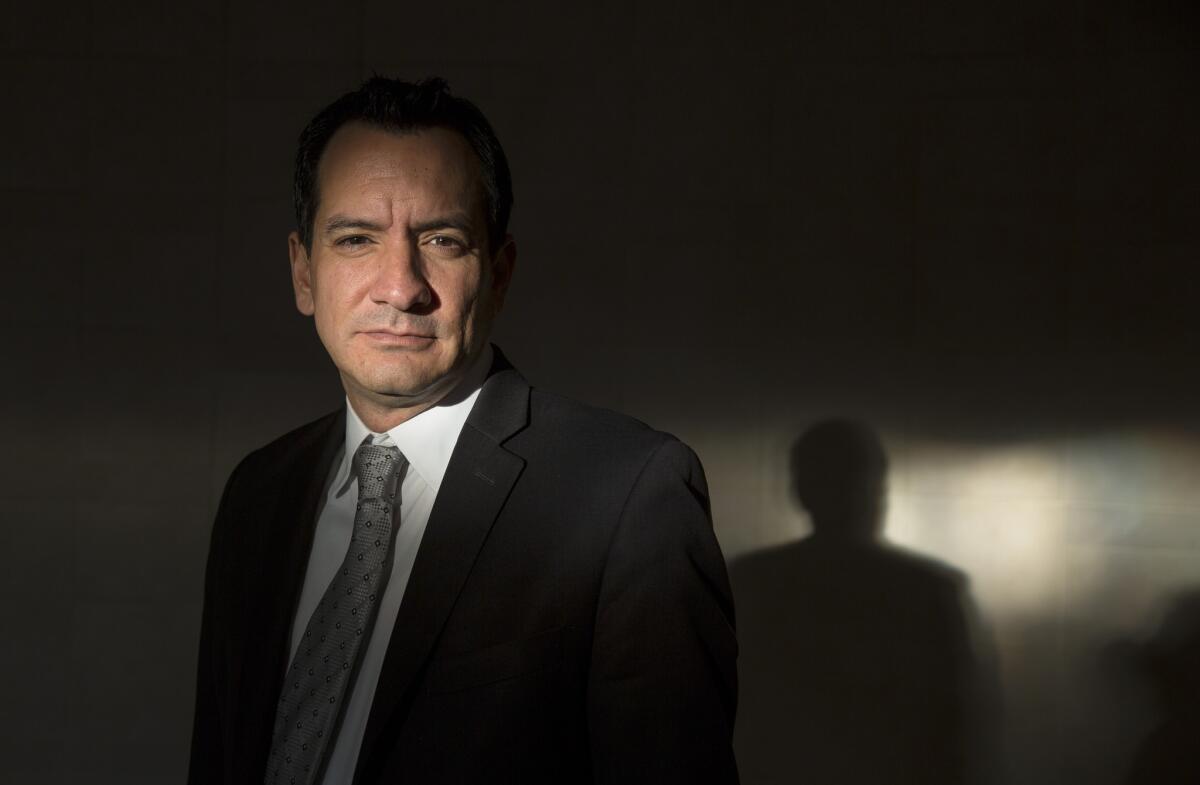Longer terms for California’s Legislature mean a flood of cash from interest groups trying to sway the balance their way

- Share via
When California’s next class of Assembly members is sworn in later this year, the most senior among them will have only four years of experience.
Under the old system of term limits, those members would have been lining up objectives for their third and final terms and plotting runs for state Senate or another office.
Instead, these lawmakers will have until 2024 if they choose to stay in the Assembly for a full 12 years, as is now allowed under revised term limits passed four years ago.
The new staying power legislators wield has helped attract an unprecedented amount of outside spending in legislative races by interest groups hoping to set the field in their favor as lawmakers settle in to their posts, potentially for more than a decade.
Outside interest groups had spent a record $63.7 million in legislative races as of Monday, according to numbers compiled by the California Target Book. That number far surpasses the $48.4 million in independent expenditures in 2014, and with a week left until the election is likely to grow.
“The train is leaving the station, and they want to buy their tickets,” said Jack Pitney, a professor of politics at Claremont McKenna College. “Where there’s an open seat, that race will fill up with money. That’s California political physics.”
Members of the Legislature elected before 2012 are restricted to three two-year terms in the state Assembly and two terms, or eight years, in the state Senate. The ballot measure passed in 2012 reduced the total time a lawmaker can spend in Sacramento to 12 years but placed no limits on their terms in each chamber.
“It’s the last group of people who are going to be elected for a while,” Assembly Speaker Anthony Rendon (D-Paramount) said in an interview one recent weekend, when he campaigned for five different Democratic candidates as his party attempts to sway the balance of the Assembly. “It’s playing for keeps this year.”
That, combined with the conventional wisdom on the inertia of incumbency, has made for an expensive election season.
The train is leaving the station, and they want to buy their tickets.
— Jack Pitney, professor of politics at Claremont McKenna College
Dan Schnur, director of USC’s Jesse M. Unruh Institute of Politics, says it remains an “open question” whether newly elected members will serve the full 12 years they’re allotted. “But if you’re a special interest, it’s more than worth the investment just in case.”
The prospect of having a sympathetic lawmaker in Sacramento for more than a decade — or the idea of having to wait that long for a changing of the guard — has significantly raised the stakes in this election.
“Under the earlier term limits…if you went into a district and didn’t win, you just sort of licked your wounds and waited the short six years to try again,” said Darry Sragow, a longtime Democratic consultant who now publishes the California Target Book. For interest groups such as labor unions or oil companies, “Twelve years is a reasonable amount of time to look down the road and see what kinds of policies you want to implement.”
In some cases, the interest groups funding independent expenditures are having to choose between Democrats, thanks to California’s top-two primary system that allows the top two vote-getters in a primary to advance to the general election. Without traditional party cues to guide them, groups like charter school advocates or the real estate industry must rely on candidate questionnaires and campaign trail promises to decide whom to back.
In the Bay Area race to replace termed-out Sen. Mark Leno (D-San Francisco), labor unions and tenants’ rights groups have backed Democrat Jane Kim with six-figure spending.
It’s playing for keeps this year.
— California Assembly Speaker Anthony Rendon (D-Paramount)
Her opponent, fellow San Francisco County Supervisor Scott Wiener, has benefited from more than $750,000 spent by groups backed by the California Charter Schools Assn. and another $1 million in spending by LGBT group Equality California, which said it based its decision on interviews with both candidates.
But the money pouring into the field from outside groups may also have less to do with individual candidates and more to do with impressing legislative leaders who also could hold power for much longer. Rendon, who will be termed out in 2024, could end up being the longest-serving Assembly Speaker since Willie Brown, who held the post for 15 years.
Of the top 10 races in independent expenditures this cycle, more than half are identified as top targets to capture or defend by Democratic leaders.
Track the election via Essential Politics >>
While the next major turnover of legislative seats is likely to not occur until 2024, when most new lawmakers will be termed out, many predict the record levels of spending will keep flowing to legislative races.
For those that don’t get a preferred outcome this cycle, the focus will be on ousting incumbents — an especially difficult and expensive task.
“When there is so much at stake in the policy discussions...I think you’ll see a huge amount of money being spent because there’s a chorus of voices clamoring to be heard by 120 people in Sacramento,” Sragow said.
For more on California politics, follow @cmaiduc.
ALSO
Independent expenditures 101: An introduction to outside spending in state races
Don’t expect big changes if Democrats win a supermajority
More to Read
Get the L.A. Times Politics newsletter
Deeply reported insights into legislation, politics and policy from Sacramento, Washington and beyond. In your inbox twice per week.
You may occasionally receive promotional content from the Los Angeles Times.









